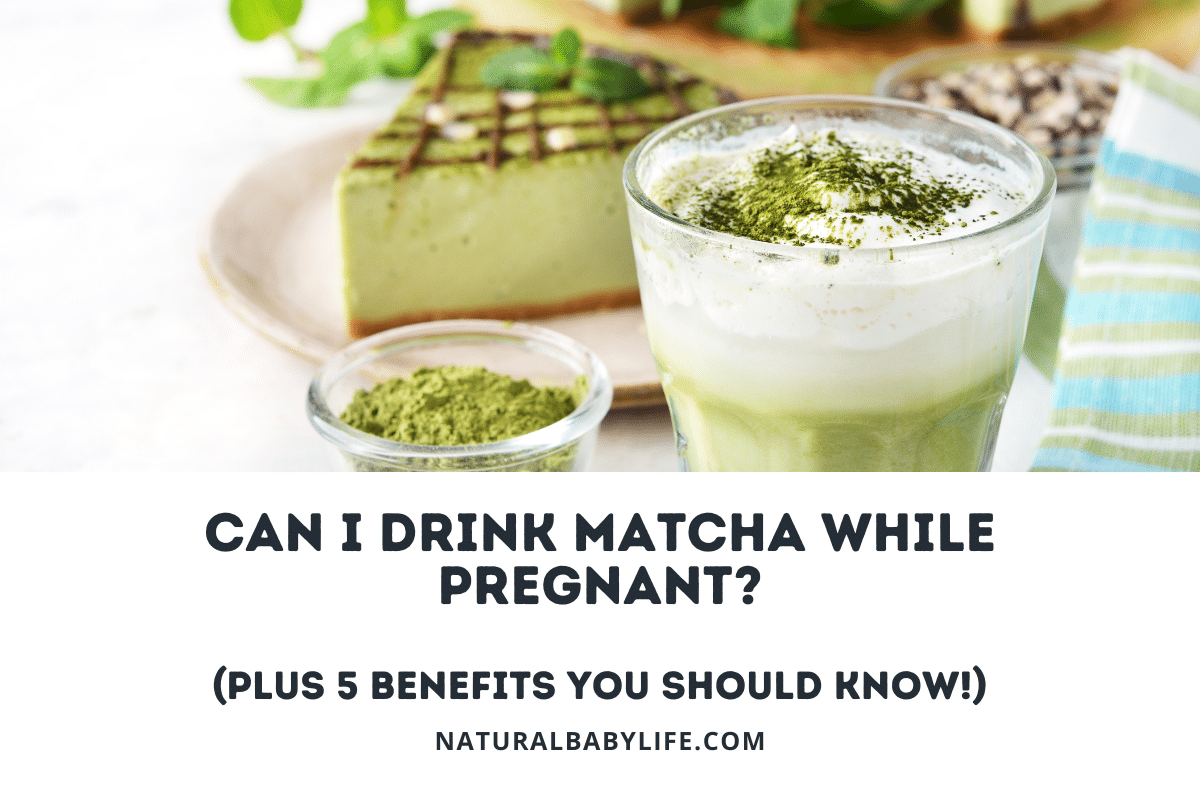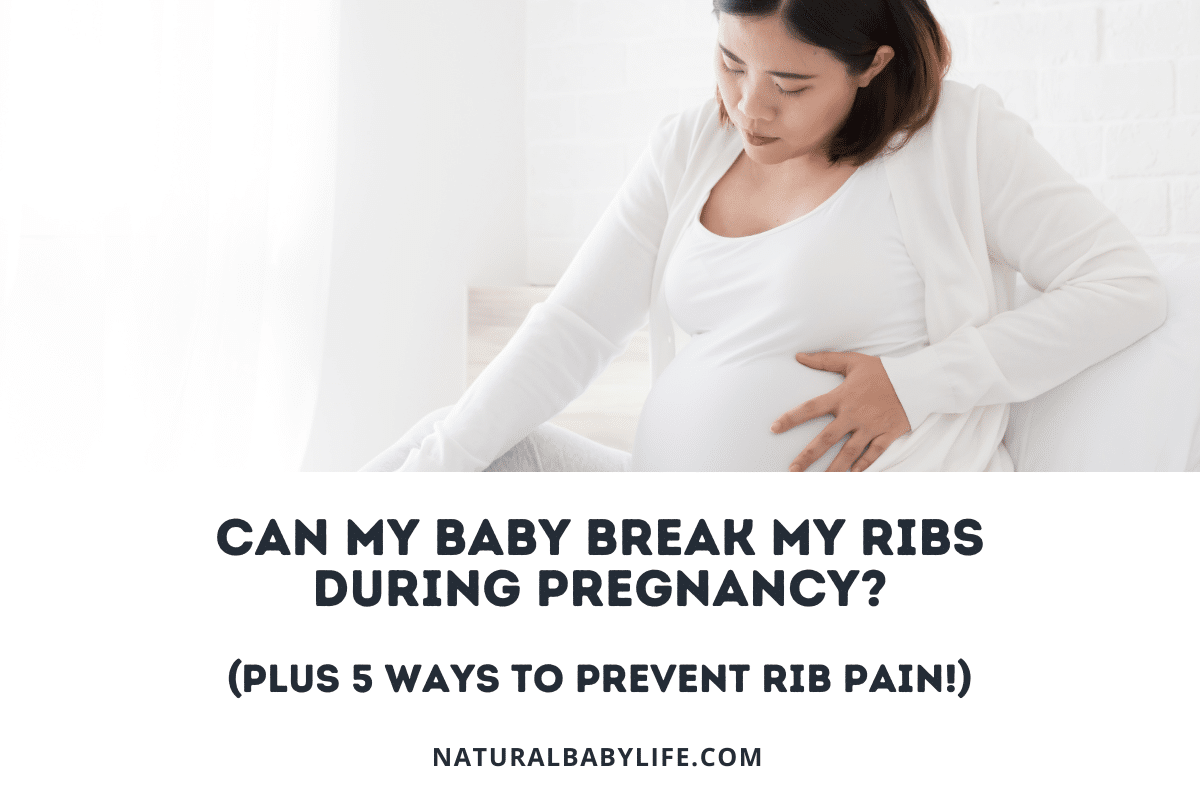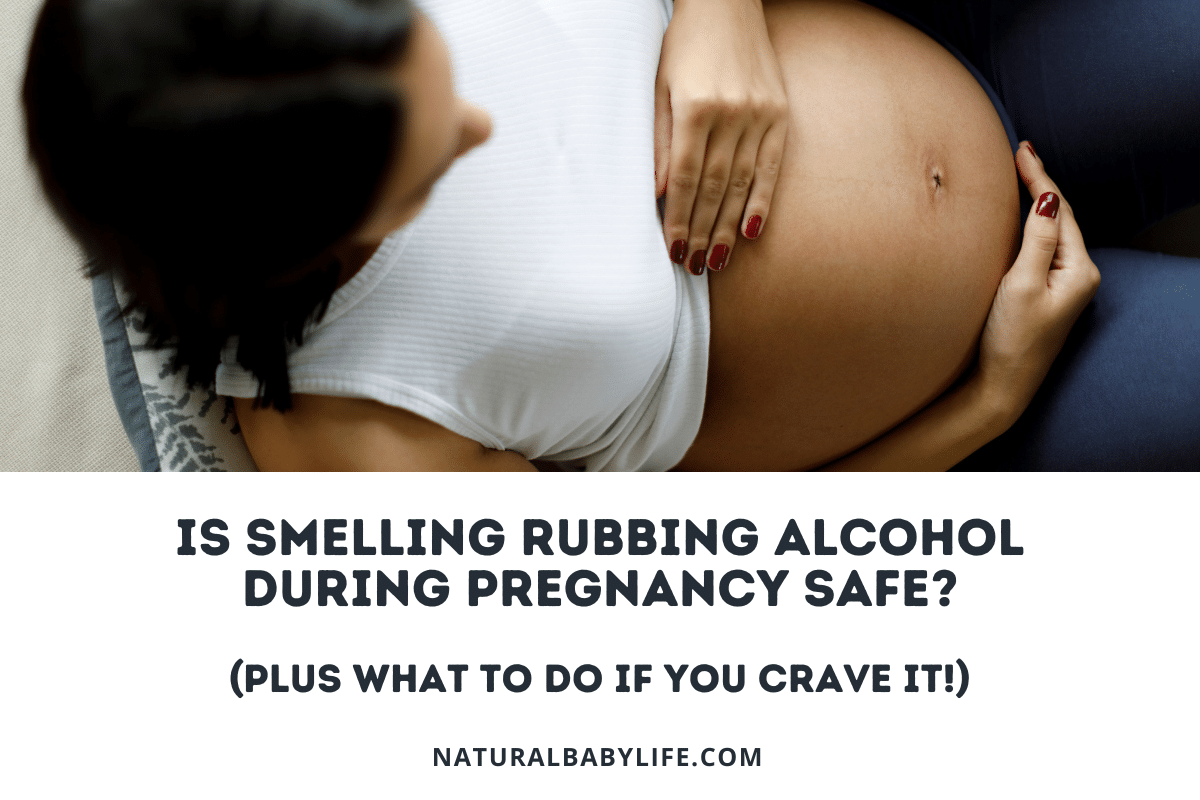Matcha tea is a popular and delicious drink made from finely ground tea leaves. It’s usually known for its green color and earthy taste, but it also has potential health benefits. Despite these benefits, there are many drinks that can be harmful for pregnant women. You may wonder can I drink matcha while pregnant?
While matcha tea is generally considered safe for pregnant women, it’s important to be aware of the ingredients in your tea. Some ingredients, such as added sugar or caffeine, may be harmful to your baby. If you enjoy having matcha during pregnancy, consume it in moderation.
Like any potential risk during pregnancy, it’s best to talk to your healthcare provider before consuming matcha or other caffeinated beverages. Keep reading to find out what to consider when drinking matcha tea during pregnancy.
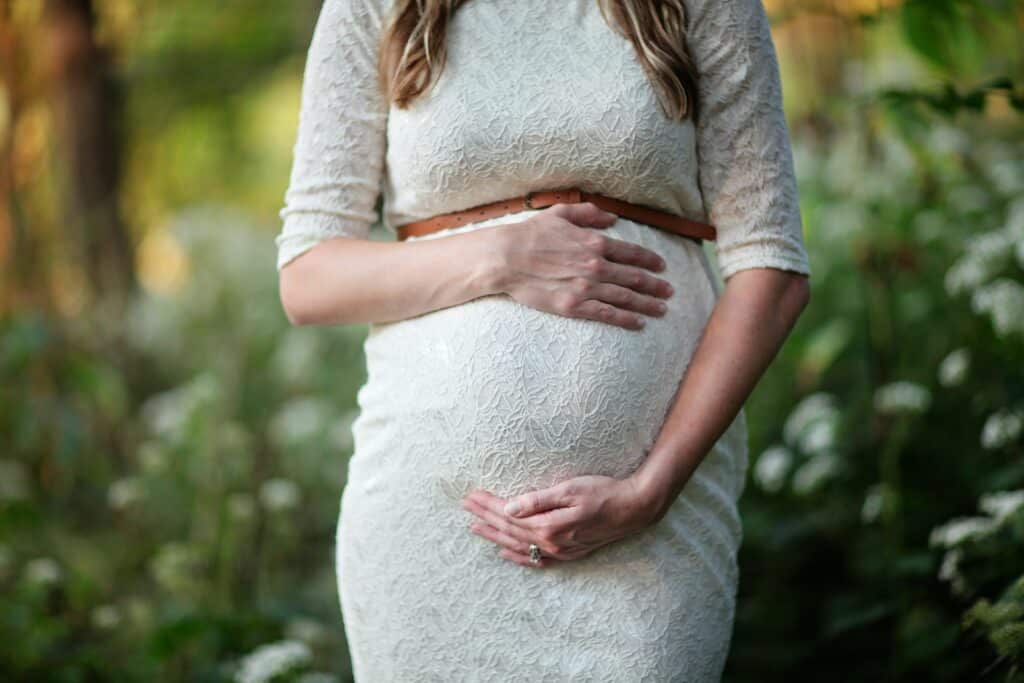
Table of Contents
Can I drink matcha while pregnant?
During pregnancy, it’s normal to be concerned about how everything you consume might impact your baby. There are plenty of things you’re told to avoid during pregnancy such as sushi, soft cheeses, and excessive amounts of caffeine. If you’re a fan of matcha tea, you might wonder if it’s something you should also avoid.
Matcha tea is made from simple and natural ingredients, including green tea leaves, water, and sometimes sweeteners or milk. While matcha tea is generally considered safe for most people, you may want to be careful about how much you drink during pregnancy due to its caffeine content. It’s recommended to consult with your doctor before consuming anything you’re unsure of during pregnancy.
Let’s take a look at what typically comes in matcha tea.
What is matcha tea?
Matcha is a type of green tea made from grinding tea leaves into a fine powder. Unlike other types of tea, matcha is consumed whole, rather than steeped in water and discarded. This means that matcha contains higher levels of caffeine and antioxidants than traditional green tea.
Matcha tea is typically made from organic tea leaves grown in Japan, and it’s often considered the highest quality tea. The ingredients in matcha tea are simple: high-quality tea leaves and hot water. Some matcha powders contain added sugar or other flavorings, but you can also purchase matcha powder without any additives.
Caffeine content of matcha tea
When it comes to consuming matcha tea during pregnancy, it’s important to consider the caffeine content. A cup of matcha tea usually contains between 19 and 44 milligrams of caffeine per gram. This means in a typical serving size of matcha tea, there would be about 68 milligrams of total caffeine.
To compare, an 8 oz cup of brewed coffee usually has between 80 and 100 milligrams of caffeine, so depending on the serving size, your cup of matcha tea may be lower than that of a cup of coffee. Additionally, how the caffeine from the matcha tea is absorbed is a little bit different than caffeine from coffee.
One of the ingredients of matcha tea is L-theanine, which is an amino acid commonly found in tea. Combined with caffeine, the amino acid has been shown to improve cognitive performance and mental alertness, but without the jittery affects caffeine can sometimes bring.
When it comes to caffeine consumption and pregnancy, there aren’t enough studies to completely understand how caffeine affects pregnant women and their babies. Some studies have shown that excess amounts of caffeine can lead to miscarriage or pre-term birth, but other studies have claimed this isn’t true.
Considering caffeine does have other side effects such as increased blood pressure and heart rate, it’s best to consume caffeine in moderation during pregnancy.
For healthy non-pregnant adults, the FDA recommends no more than 400 milligrams of caffeine per day. The American College of Obstetricians and Gynecologists recommends pregnant women consume no more than 200 milligrams per day. Moderate caffeine intake during pregnancy isn’t linked to any health risks for the expectant mom or baby.
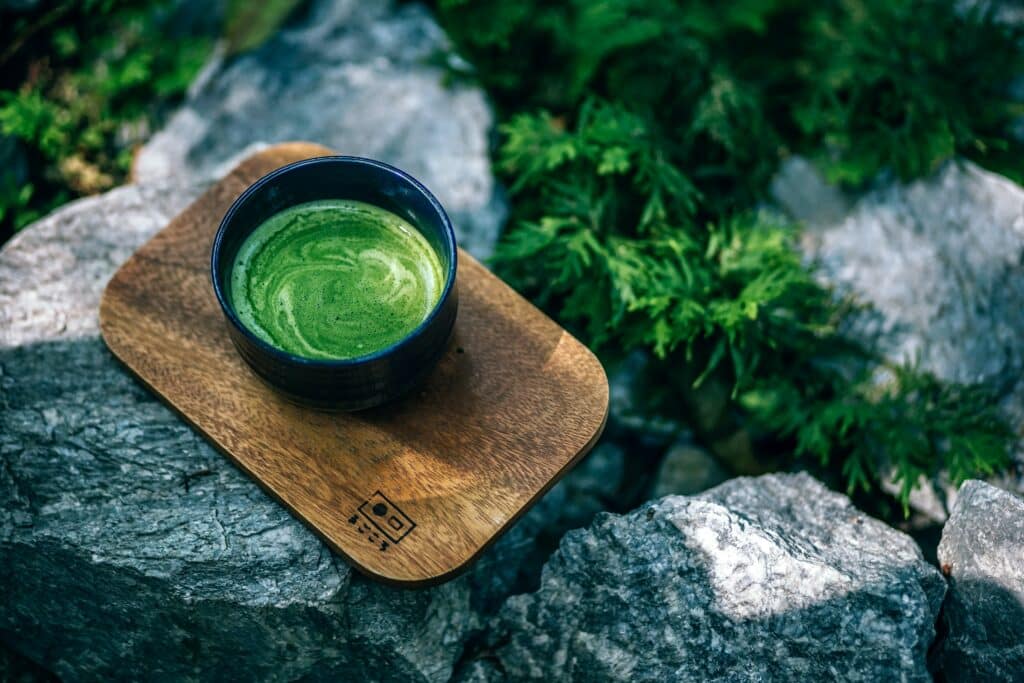
Ingredients in matcha tea
Matcha tea is made by whisking the tea powder with hot water to create a frothy drink. Matcha tea is known for its unique flavor and many health benefits.
The usual ingredients in matcha tea include:
- Green tea leaves
- Caffeine
- L-theanine
- Antioxidants
- Chlorophyll
Although these ingredients are found in matcha tea powder, when you purchase a matcha tea beverage, there may be other added ingredients.
Many coffee shops, even well-known chains such as Starbucks or Dunkin’ Donuts, have a matcha beverage on their menu. But if you order a matcha tea latte from one of these places, keep in mind they are going to have a significant amount of added sugar. Sugar or additional flavors are often mixed with the matcha powder itself because matcha has a pretty earthy and bitter flavor on its own.
Benefits of matcha while pregnant
You might love the taste of matcha tea and consider it a delicious alternative to coffee during pregnancy. But did you know matcha tea has other health benefits as well? The tea leaves used in matcha tea are high in antioxidants, which can help reduce inflammation and protect against chronic diseases.
L-theanine, an amino acid found in matcha tea, can have a calming effect on the body as well as reduce stress and anxiety. Antioxidants and chlorophyll, also found in matcha tea, have been linked to various health benefits such as reducing inflammation.
Additionally, matcha tea has been shown to have many other benefits such as:
- Anti-carcinogenic effects
- Anti-inflammatory effects
- Cardio protective effects
- Antiviral properties
- Helping to improve cognitive function
The unique chemical composition of matcha tea leads to many health benefits, even in comparison to other types of teas. Even though there are benefits to drinking matcha tea, it’s still important for pregnant women to consume it in moderation.
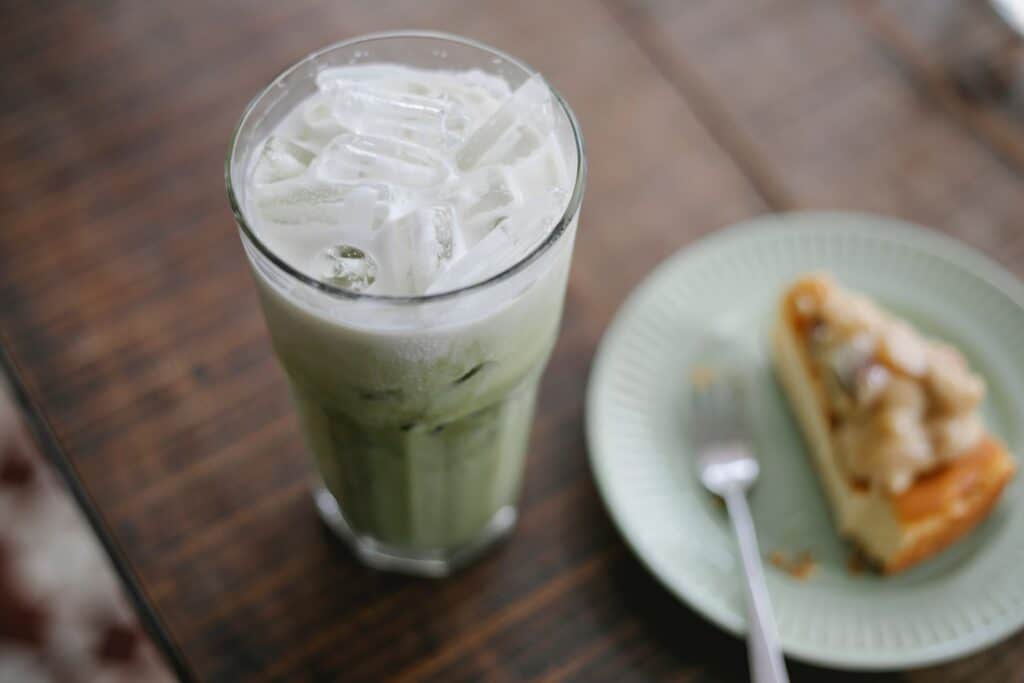
Ways to drink matcha tea
If you’re craving matcha while pregnant, you might wonder where you can get matcha tea or how to make it at home. Since matcha tea has become so popular, most coffee or tea places will have a matcha beverage. Keep in mind, most places will include added sugar, so be sure to check the ingredients or ask for no sugar added if you’re looking to reduce your intake during pregnancy.
Making matcha tea at home is pretty simple. The tea comes in powdered form and can be purchased at most grocery stores, health food stores, or online. Once you have your matcha powder, prepare your tea by:
- Boiling water
- Adding a teaspoon of matcha to your favorite cup
- Adding a few drops of water to the powder to make a paste
- Add the desired amount of water to make a full cup
- Add any milk or desired sugar
If you’re used to buying a matcha latte at your local coffee shop, it will take some trial and error to make it at home. Try making it with milk or a bit of sugar to cut some of the bitterness. You can also use matcha powder in smoothies, dressing, or even baked goods.
Conclusion
While matcha tea has many potential health benefits, pregnant women should consume it in moderation. The caffeine content in matcha tea can be a concern for pregnant women, and during pregnancy, it’s recommended that you limit their caffeine intake to 200mg per day. One cup of matcha tea contains approximately 70mg of caffeine, which is lower than the caffeine content of coffee but still significant.
Additionally, there aren’t enough studies that show the impact of certain ingredients on pregnant women such as green tea catechins and L-theanine. While these ingredients are generally considered safe, you may want to consult with your doctor before consuming matcha tea.
Overall, while matcha tea is generally safe for pregnant women in moderation, be mindful of the caffeine content and limit your intake accordingly.
FAQs
Is matcha safe during pregnancy?
Yes, when consumed in moderation, matcha tea is considered safe for pregnant women. However, don’t hesitate to reach out to your health care provider before adding matcha tea to your diet, or if you have any other concerns about your little one.
How much matcha can I drink during pregnancy?
The biggest concern about consuming too much matcha tea during pregnancy is the caffeine content. Since a cup of matcha tea generally has between 68 and 70 milligrams of caffeine, you shouldn’t consume more than two cups of matcha tea in a day.
Can I drink a Starbucks green tea latte while pregnant?
If you’re wondering if you can order a Starbucks matcha while pregnant, the answer is yes, this drink is safe for most pregnant women. A grande matcha tea at Starbucks has 80 milligrams of caffeine and 28 grams of sugar. Since the matcha tea blend at Starbucks has sugar mixed in, you can’t make this drink completely sugar free, but you can swap out the milk for a non-dairy milk with a lower sugar content.

